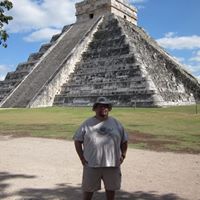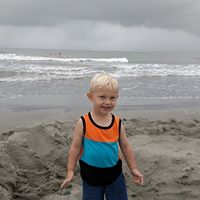Dana Christian Andersen
age ~58
from Menlo Park, CA
- Also known as:
-
- Dana C Andersen
- Dana C Anderson
- Phone and address:
-
8 Hesketh Dr, Menlo Park, CA 94025
(650)8389622
Dana Andersen Phones & Addresses
- 8 Hesketh Dr, Menlo Park, CA 94025 • (650)8389622
- Tahoma, CA
- 2808 Carolina Ave, Redwood City, CA 94061 • (650)3643021
- Belmont, CA
- Centennial, CO
- Palo Alto, CA
Isbn (Books And Publications)


Medicine Doctors

Dana A. Andersen
view sourceSpecialties:
Family Medicine
Work:
Granger Medical ClinicGranger Medical West Jordan
3181 W 9000 S STE 101, West Jordan, UT 84088
(801)5695600 (phone), (801)3525914 (fax)
Granger West Jordan Urgent Care
3181 W 9000 S, West Jordan, UT 84088
(801)5695575 (phone), (801)5695525 (fax)
3181 W 9000 S STE 101, West Jordan, UT 84088
(801)5695600 (phone), (801)3525914 (fax)
Granger West Jordan Urgent Care
3181 W 9000 S, West Jordan, UT 84088
(801)5695575 (phone), (801)5695525 (fax)
Education:
Medical School
University of Utah School of Medicine
Graduated: 1983
University of Utah School of Medicine
Graduated: 1983
Procedures:
Arthrocentesis
Destruction of Benign/Premalignant Skin Lesions
Electrocardiogram (EKG or ECG)
Pulmonary Function Tests
Skin Tags Removal
Vaccine Administration
Destruction of Benign/Premalignant Skin Lesions
Electrocardiogram (EKG or ECG)
Pulmonary Function Tests
Skin Tags Removal
Vaccine Administration
Conditions:
Abdominal Hernia
Abnormal Vaginal Bleeding
Acne
Acute Bronchitis
Acute Pharyngitis
Abnormal Vaginal Bleeding
Acne
Acute Bronchitis
Acute Pharyngitis
Languages:
English
Spanish
Spanish
Description:
Dr. Andersen graduated from the University of Utah School of Medicine in 1983. He works in West Jordan, UT and 1 other location and specializes in Family Medicine. Dr. Andersen is affiliated with Alta View Hospital, Jordan Valley Medical Center, Jordan Valley Medical Center-West Valley Campus and Riverton Hospital.
Wikipedia References

Dana Andersen
Us Patents
-
Cell Culture Process
view source -
US Patent:6610516, Aug 26, 2003
-
Filed:Nov 27, 2000
-
Appl. No.:09/723545
-
Inventors:Dana C. Andersen - Redwood City CA
Tiffany M. Bridges - Burlingame CA
Martin Gawlitzek - Foster City CA
Cynthia A. Hoy - Hillsborough CA -
Assignee:Genentech, Inc. - South San Francisco CA
-
International Classification:C12P 2104
-
US Classification:435 701, 435 691, 4352523, 435358, 530395
-
Abstract:A glycoprotein is produced by a process comprising culturing mammalian host cells expressing nucleic acid encoding a glycoprotein in the presence of (a) a factor that modifies growth state in a cell culture, (b) a divalent metal cation that can adopt and prefers an octahedral coordination geometry, and/or (c) a plasma component. In this process, the occupancy of an N-linked glycosylation site occupied only in a fraction of a glycoprotein is enhanced. Such culturing is preferably carried out at a temperature of between about 30Â C. and 35Â C. and/or in the presence of up to about 2 mM of a butyrate salt and/or in the presence of a cell-cycle inhibitor.
-
Metabolic Rate Shifts In Fermentations Expressing Recombinant Proteins
view source -
US Patent:6716602, Apr 6, 2004
-
Filed:Nov 1, 2001
-
Appl. No.:10/000655
-
Inventors:Dana Andersen - Redwood City CA
John Joly - San Mateo CA
Bradley R. Snedecor - Portola Valley CA -
Assignee:Genentech, Inc. - South San Francisco CA
-
International Classification:C12P 2106
-
US Classification:435 691, 435 694, 435 712, 4352528, 435243
-
Abstract:The invention provides a method for increasing product yield of a polypeptide of interest produced by recombinant host cells, where expression of the polypeptide by the recombinant host cells is regulated by an inducible system. More specifically, the method involves culturing the recombinant host cells under conditions of high metabolic and growth rate and then reducing the metabolic rate of the recombinant host cells at the time of induction of polypeptide expression. In particular, the invention provides a method of increasing product yield of an antibody, growth factor, or protease produced by a recombinant host cell regulated by an inducible system.
-
System For Antibody Expression And Assembly
view source -
US Patent:20030077739, Apr 24, 2003
-
Filed:Aug 26, 2002
-
Appl. No.:10/227694
-
Inventors:Laura Simmons - Burlingame CA, US
Dana Andersen - Redwood City CA, US -
Assignee:GENENTECH, INC. - South San Francisco CA
-
International Classification:C12P021/02
C12N001/21
C07H021/04
C12N015/74
C07K016/00 -
US Classification:435/069100, 435/252330, 435/320100, 530/388150, 536/023530
-
Abstract:The present invention provides methods and compositions for expression and production of recombinant antibodies in a host cell system, such as prokaryotic and eukaryotic expression systems. Particularly contemplated are recombinant systems for temporally separated expression of light chain and heavy chain of antibodies. The antibody products including antibody fragments can be used in various aspects of biological research, diagnosis and medical treatment.
-
System For Antibody Expression And Assembly
view source -
US Patent:20060246542, Nov 2, 2006
-
Filed:Feb 9, 2006
-
Appl. No.:11/351886
-
Inventors:Laura Simmons - Burlingame CA, US
Dana Andersen - Redwood City CA, US -
Assignee:GENENTECH, INC. - SOUTH SAN FRANCISCO CA
-
International Classification:C12P 21/06
C07H 21/04
C12N 1/21
C07K 16/42
C07K 16/28
C07K 16/22
C12N 15/74 -
US Classification:435069100, 435252300, 435471000, 530388100, 530388220, 530387200, 530388250, 536023530
-
Abstract:The present invention provides methods and compositions for expression and production of recombinant antibodies in a host cell system, such as prokaryotic and eukaryotic expression systems. Particularly contemplated are recombinant systems for temporally separated expression of light chain and heavy chain of antibodies. The antibody products including antibody fragments can be used in various aspects of biological research, diagnosis and medical treatment.
-
System For Antibody Expression And Assembly
view source -
US Patent:20070015244, Jan 18, 2007
-
Filed:May 22, 2006
-
Appl. No.:11/438484
-
Inventors:Laura Simmons - Burlingame CA, US
Dana Andersen - Redwood City CA, US -
Assignee:GENENTECH, INC. - SOUTH SAN FRANCISCO CA
-
International Classification:C12P 21/06
C07H 21/04
C12N 1/21
C07K 16/18 -
US Classification:435069100, 435252300, 435320100, 530388100, 536023500
-
Abstract:The present invention provides methods and compositions for expression and production of recombinant antibodies in a host cell system, such as prokaryotic and eukaryotic expression systems. Particularly contemplated are recombinant systems for temporally separated expression of light chain and heavy chain of antibodies. The antibody products including antibody fragments can be used in various aspects of biological research, diagnosis and medical treatment.
-
Methods Of Protein Purification
view source -
US Patent:20100256336, Oct 7, 2010
-
Filed:Sep 17, 2007
-
Appl. No.:12/441775
-
Inventors:Inn Huam Yuk - Berkeley CA, US
Bradley Richard Snedecor - Portola Valley CA, US
Dana Christian Andersen - Menlo Park CA, US -
International Classification:C07K 16/28
C12P 21/02
C12P 21/08 -
US Classification:5303873, 435 711, 530350, 5303871
-
Abstract:A method of reducing glycation of an amino acid in a protein produced by a host cell in cell culture medium is disclosed.
-
System For Antibody Expression And Assembly
view source -
US Patent:20110244517, Oct 6, 2011
-
Filed:Feb 23, 2011
-
Appl. No.:13/033521
-
Inventors:Laura Simmons - Burlingame CA, US
Dana Andersen - Redwood City CA, US -
International Classification:C12P 21/00
C12N 1/21
C12N 15/63 -
US Classification:435 696, 43525233, 4353201
-
Abstract:The present invention provides methods and compositions for expression and production of recombinant antibodies in a host cell system, such as prokaryotic and eukaryotic expression systems. Particularly contemplated are recombinant systems for temporally separated expression of light chain and heavy chain of antibodies. The antibody products including antibody fragments can be used in various aspects of biological research, diagnosis and medical treatment.
-
Cell Culture Process
view source -
US Patent:6506598, Jan 14, 2003
-
Filed:Apr 21, 2000
-
Appl. No.:09/553924
-
Inventors:Dana C. Andersen - Redwood City CA
Tiffany M. Bridges - Burlingame CA
Martin Gawlitzek - Foster City CA
Cynthia A. Hoy - Hillsborough CA -
Assignee:Genentech, Inc. - South San Francisco CA
-
International Classification:C12N 506
-
US Classification:435359, 435 696, 435358, 4352523, 530395
-
Abstract:A glycoprotein is produced by a process comprising culturing mammalian host cells expressing nucleic acid encoding said glycoprotein in the presence of (a) a factor that modifies growth state in a cell culture, (b) a divalent metal cation that can adopt and prefers an octahedral coordination geometry, and/or (c) a plasma component. In this process, the occupancy of an N-linked glycosylation site occupied only in a fraction of a glycoprotein is enhanced. Such culturing is preferably carried out at a temperature of between about 30Â C. and 35Â C. and/or in the presence of up to about 2 mM of a butyrate salt and/or in the presence of a cell-cycle inhibitor.
Resumes

Senior Director At Genentech, Inc.
view sourcePosition:
Senior Director, Pharmaceutical Development at Genentech
Location:
San Francisco Bay Area
Industry:
Biotechnology
Work:
Genentech since Sep 1995
Senior Director, Pharmaceutical Development
ETH Zurich 1994 - 1995
Post-Doc
Senior Director, Pharmaceutical Development
ETH Zurich 1994 - 1995
Post-Doc
Education:
Stanford University 1989 - 1994

Investment Manager Chez Areva
view sourcePosition:
Investment manager at AREVA
Location:
États-Unis
Industry:
Oil & Energy
Work:
AREVA Occupe actuellement ce poste
Investment manager
Investment manager

Dana Andersen
view sourceLocation:
United States
Classmates

Dana Sortor (Andersen)
view sourceSchools:
South Whidbey High School Langley WA 1981-1984
Community:
Michael Same, Kathy Fenn, Russ Dahl

Dana Andersen
view sourceSchools:
Moses Middle School North Babylon NY 1995-1998
Community:
James Carley, Lisa Dennis, Iris Bamberg, Linda Bible, Jonnie Loll

Dana Andersen (Krauss)
view sourceSchools:
Temple City High School Temple City CA 1977-1981
Community:
Tracy Russell, Bruno Dohle

Dana Andersen
view sourceSchools:
Piner High School Santa Rosa CA 1969-1973
Community:
Glenda Gross, Deevinda Tosten, Jennifere Peterson

Dana Andersen-wyman | Oma...
view source
Moses Middle School, Nort...
view sourceGraduates:
Dana Andersen (1995-1998),
Robert Irizarry (1971-1972),
Allison Strack (1977-1979),
Richard Staufenberg (1991-1994)
Robert Irizarry (1971-1972),
Allison Strack (1977-1979),
Richard Staufenberg (1991-1994)

Calistoga High School, Ca...
view sourceGraduates:
Chad Hostnick (1987-1991),
Warren Linnell (1960-1964),
Dana Andersen (1976-1980),
Jim Atkinson (1966-1970),
Patrick Karpuk (1997-2001)
Warren Linnell (1960-1964),
Dana Andersen (1976-1980),
Jim Atkinson (1966-1970),
Patrick Karpuk (1997-2001)
Myspace
Youtube
Flickr

Dana Andersen
view source
Dana Andersen
view source
Dana Derek Andersen
view source
Dana Hancock Andersen
view source
Dana Andersen
view source
Dana Andersen
view source
Dana Andersen
view source
Dana Andersen
view sourceGoogleplus

Dana Andersen

Dana Andersen

Dana Andersen

Dana Andersen

Dana Andersen

Dana Andersen

Dana Andersen
Get Report for Dana Christian Andersen from Menlo Park, CA, age ~58


















